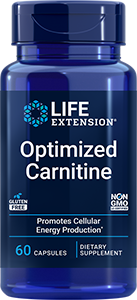 | December 16, 2008 | | | | Wendy Demark-Wahnefried of the University of Texas M. D. Anderson Cancer Center in Houston, along with scientists from Duke University and other research centers, report in the December, 2008 issue of Cancer Epidemiology, Biomarkers & Prevention their finding of a reduction in prostate cancer proliferation rates associated with flaxseed intake. The current research involved 161 men with prostate cancer scheduled for surgical removal of the prostate gland. The men were randomized to receive a diet supplemented with 30 grams flaxseed per day, a low fat diet, a low fat diet supplemented with flaxseed, or their usual diet for an average of thirty days until the date of their surgery. Blood samples were analyzed for lipids, omega-3 fatty acids, and other factors at the beginning of the trial and prior to surgery. Prostate tumors were examined for proliferation and apoptosis following removal of the gland. The groups that received flaxseed were found to have less than half the rate of tumor cell proliferation than men who consumed their usual diets. Although no significant effect on proliferation was observed among those who received a low fat diet without flax, both groups on low fat diets experienced a significant reduction in total and low-density lipoprotein cholesterol. In their introduction to the article, the researchers note that flaxseed contains over 800 times the amount of lignans than most other foods. Lignans have been shown to have “antimitotic, antiangiogenic, antioxidant, and phytoestrogenic effects,” as well as an ability to reduce the 5-alpha-reductase enzyme which may be involved in the development of prostate cancer. Flax also provides omega-3 fatty acids which increase natural killer cell activity, alter tyrosine kinase cell signaling pathways, reduce cell membrane synthesis, influence cell receptor status and suppress the production of pro-inflammatory prostaglandin E2. Although flaxseed is high in the omega-3 fatty acid alpha-linolenic acid, the researchers found instead a significantly higher level of the omega-3 fatty acid eicosapentaenoic acid (EPA) in the red blood cells and prostate tissue of participants who received flaxseed, which suggests that ALA in flax was converted to EPA in the body. “Although other studies have employed presurgical models to test the effects of complementary therapies on prostate cancer, to our knowledge, this has been the largest effort to date,” the authors announce. “The evidence suggests that flaxseed (a) is a good, low-cost source of select vitamins and minerals and fiber, (b) is well-accepted and safe to use, and (c) warrants further testing as a preventive or complementary therapy for prostate cancer. | |  |  | | We believe that diet should be regarded as having serious biochemical relevance to the health of the individual. Excessive caloric consumption is a significant factor that adversely effects longevity. Caloric restriction has been shown to be an important factor in augmenting the immune system and improving longevity. We need to rethink how much food we need to eat. Our ideal body weight should be taken seriously. If we were to do this alone, we would virtually eliminate diabetes, hypertension, hypercholesterolemia, stroke, heart disease, and a significant amount of cancer from our lives. Patients should strive at a general figure of 500 calories a meal, and 100 calories per snack. Modifications of this are based on the level of activity, age, and body surface area. The free radical-generating fatty acid called arachidonic acid, an unfavorable eicosanoid, has been shown to stimulate prostate cancer (PC) cell growth. The molecular pathway of arachidonic stimulation involves the inflammatory enzyme 5-lipooxygenase. Recent papers show that inhibition of arachidonic acid leads to PC programmed cell death, or apoptosis (Ghosh and Myers, Proc. Natl. Acad. Sci. USA, 1998). Lipooxygenase also is involved in the formation of abnormal blood clots. Nutrients that specifically inhibit 5-lipooxygenase include garlic. Fish oil supplements (EPA), an omega-3 fatty acid, have been shown to suppress arachidonic acid formation. Prostaglandins are synthesized from arachidonic acid by the enzyme cyclooxygenase. A particularly dangerous prostaglandin is PGE2, which is involved in many chronic inflammatory diseases. The administration of PGE2 to prostate, breast, and colon-cancer cells resulted in increased cellular proliferation. An ibuprofen derivative called Flurbiprofen inhibited PGE2-induced PC cell growth (Tjandrawinata et al., Br. J. Cancer, 1997). Aspirin, ibuprofen, and fish oil are other available agents that inhibit PGE2 synthesis. | Join the Life Extension Foundation! Too many people are dying today as a result of medical ignorance and apathy. The Life Extension Foundation is breaking down the bureaucratic barriers that deny human beings access to validated life-saving therapies. If you join the Life Extension Foundation today, you’ll receive: - The 1,665-page reference book called Disease Prevention and Treatment. This hardcover fourth edition reveals what doctors are NOT doing to save the lives of their patients and contains novel approaches to prevent and treat 134 medical disorders. The cover price is $49.95, but is sent free to new Life Extension members.
- Life Extension magazine…an over 100-page monthly publication filled with medical research findings, scientific reports, and practical guidance about using nutritional supplements and hormones to slow aging. Life Extension magazine provides a continuous stream of knowledge about the practical application of new discoveries that enables readers to protect their precious health.
- An incredible 25-50% discount on nutritional supplements, vitamins and mail-order blood testing services — your savings can greatly exceed your membership dues.
- All members receive additional exciting benefits and discounts on products and services, including discounts on prescription drugs, offered by select partner companies, such as Hertz, Bally’s and Royal Resorts. Members can earn additional benefits based on their product purchase history through the Life Extension Buyers Club.
- And more!
| |
 | Life Extension Mouthwash with Pomegranate  |
| Rinsing with new Pomegranate Mouthwash complements the benefits of brushing with Life Extension Toothpaste. While brushing breaks up the sticky film on teeth, rinsing helps avoid the build-up of this dental film, which can harden over time. Used together, new Pomegranate Mouthwash and Life Extension Toothpaste are essential components of a daily oral health care regimen. Pomegranate Mouthwash is alcohol-free, with no burning sensation. The crisp cinnamon flavor leaves the mouth feeling clean and fresh. | | |   |
| Nutritional researchers have discovered that carnitine, a derivative of the amino acid, lysine, helps the body convert fatty acids into energy in the mitochondria, thus promoting youthful levels of cellular energy production. Researchers have identified several optimized, next-generation forms of carnitine that not only help boost cellular energy production, but also may confer targeted benefits for the brain, heart, muscles, and central nervous system. Optimized Carnitine with GlycoCarn™ combines these advanced forms of carnitine acetyl-L-carnitine, glycine propionyl-L-carnitine, and acetyl-L-carnitine arginate in a single formula that is unique among amino acid supplements. The formula provides balanced, broad-spectrum support for cellular energy production throughout the body. | | | |  | | Life Extension Update | | What's Hot | | Life Extension magazine | |















